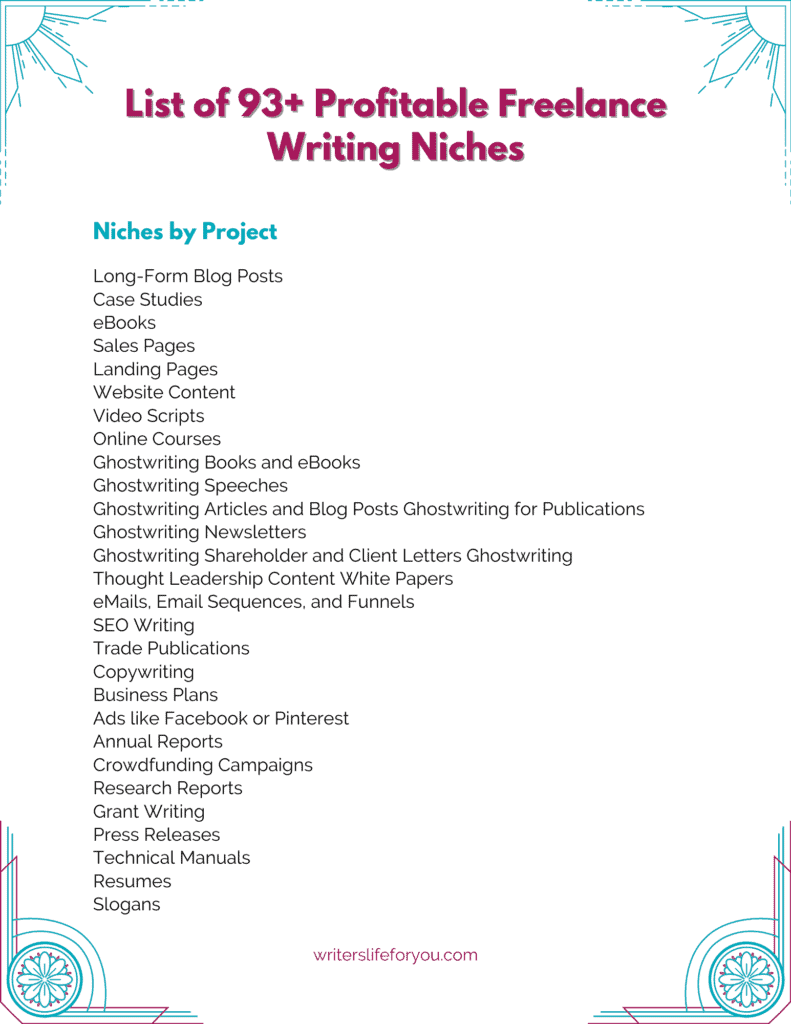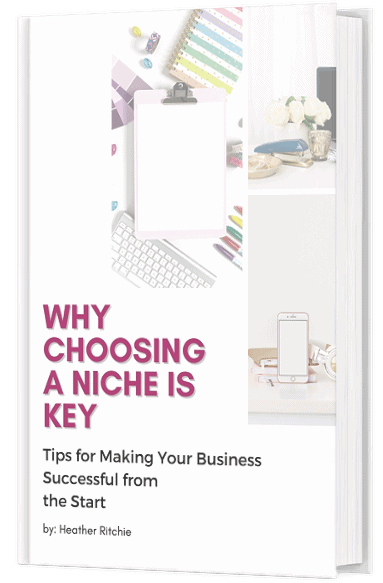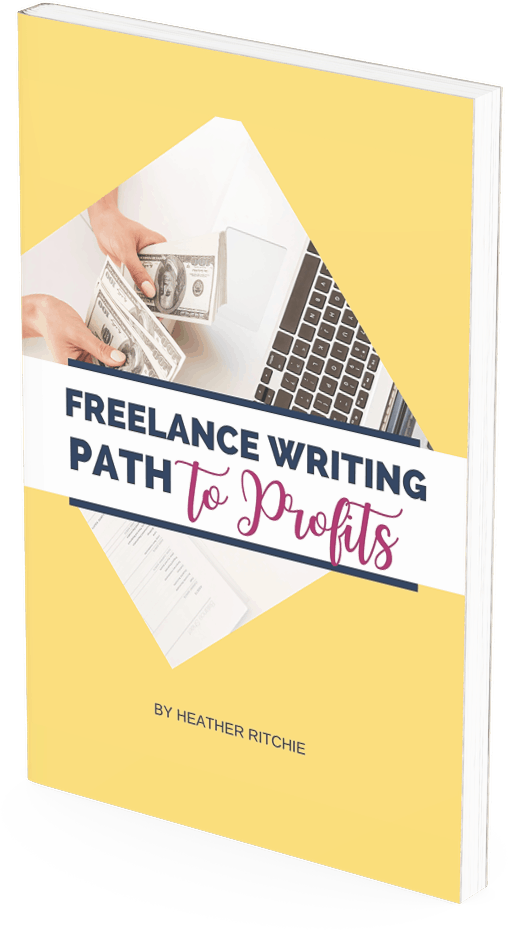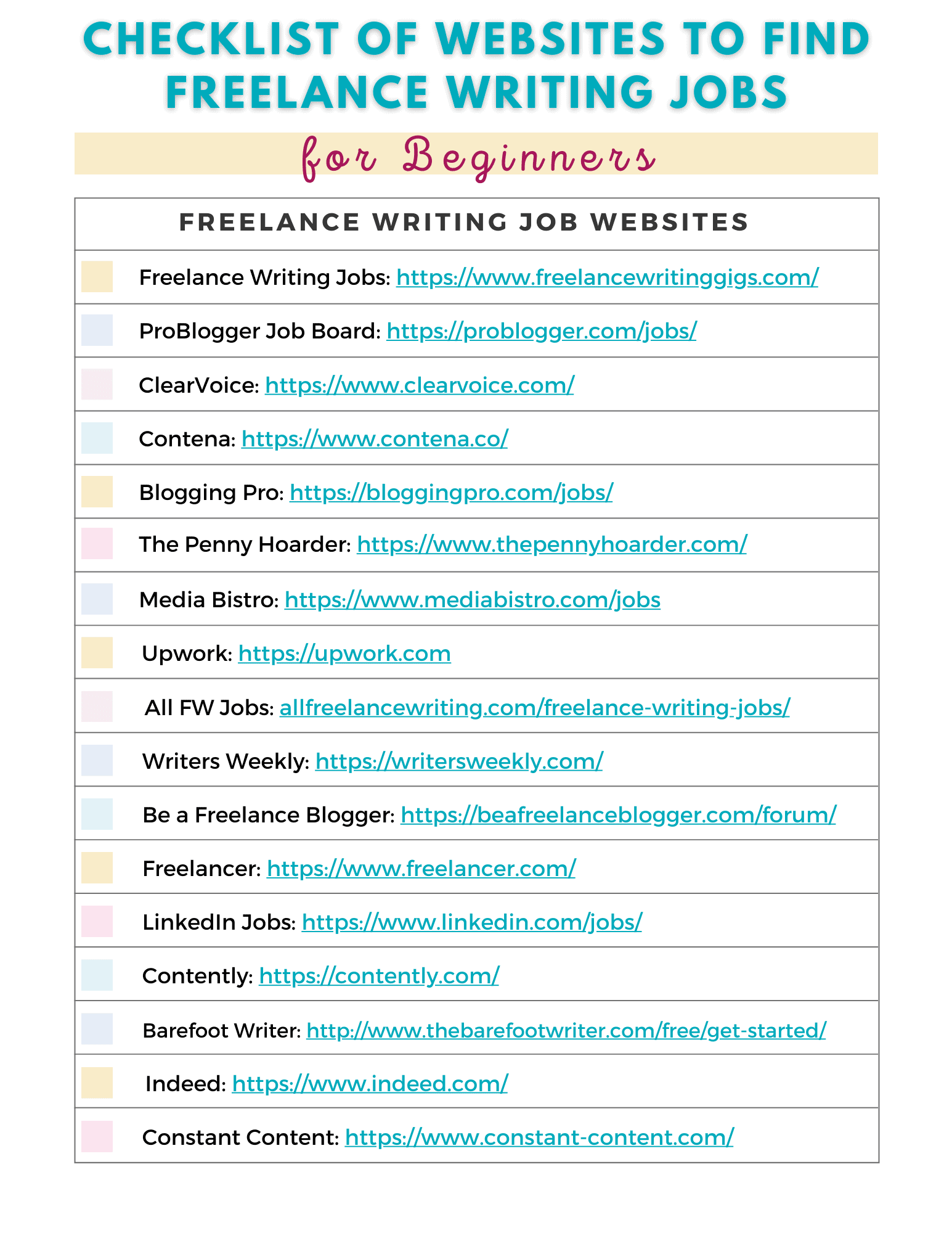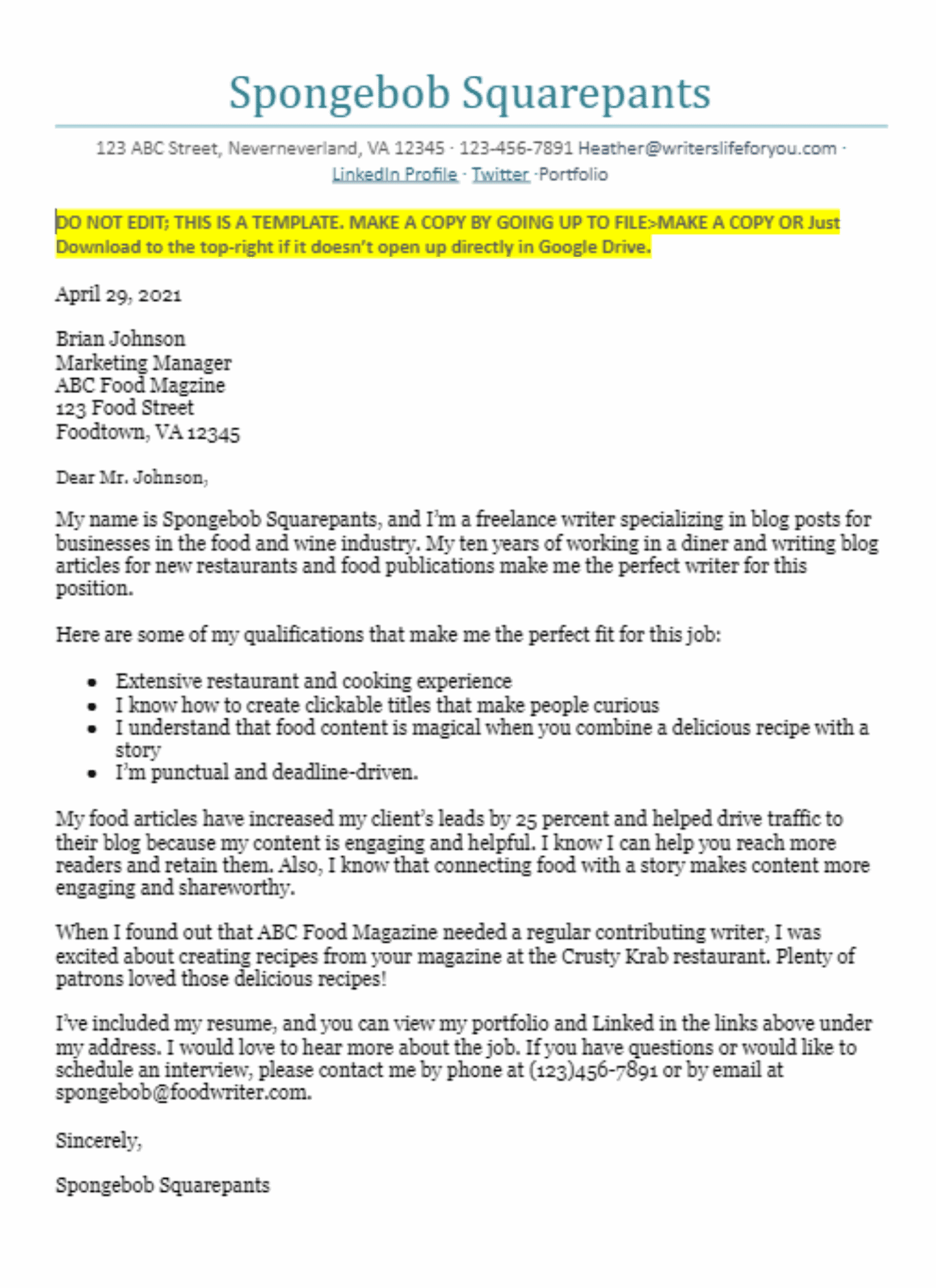How to Set Your Freelance Writing Rates in 2024
When I started my freelance writing business back in 2017, I had no idea what to charge for my writing. I tried to find the average rates that freelance writers charge, but I soon found figuring out how to price my services was a little more complicated than I thought.
And now that I’ve been writing for clients for a while, I get it! So, many things about freelance writing depend on your skill and experience, the type of content you write, and the clients you target.
Part of what makes pricing so tricky for freelance writers is that we all have our preferences. And while there may be some general trends, it can be confusing for the average freelance writer to try to figure out his or her rates.
So, I wanted to make the whole rate debate a little clearer than mud and provide some resources on:
- Freelance writing rates 2022
- The status of freelance writing today
- The different types of freelance writing rates
- The factors to consider when setting your rates
- A simple rate formula
- Tips for setting your own writing rates
Let’s dive in on what to charge for your freelance writing services.

The Status of Freelance Writing in 2022
Freelance writers have played an essential part in business for years, especially once content marketing became even more popular. Then after the COVID-19 pandemic, when almost every brick-and-mortar business went online too, businesses needed to outsource many tasks to freelancers.
So, if you’re wondering if freelance writing is dead, don’t worry; it’s more in demand than ever before. Forbes reported some key trends on freelancing this year, and it was further proved just how healthy the freelancing industry is.
- More people are choosing to freelance full-time or as a side hustle.
- There are more freelancing platforms.
- There are more ways to build a freelance career.
- And there is more support for freelancers and their platforms.
I know many people like to say that traditional jobs are more stable, but if the pandemic taught us anything, it’s that this isn’t true. You can find yourself laid off or fired with little control over how your career evolves.
While getting paid as a freelancer is different, you’re in charge of finding clients, so this actually empowers you. But of course, it’s not perfect and depends on finding the right pricing model for you.

Different Types of Freelance Writing Rates
There are several common ways freelance writers can get paid:
- Per word
- By the hour
- A flat rate or per project
- A monthly retainer fee for ongoing work
- Per page
- Packages
Understanding the different pricing models is part of setting your freelance writing rate for each service you offer. Some are more beneficial to writers, like retainer fees, per project, or per word, versus some that aren’t as beneficial, like per hour or per page.
Project rates are often known as value-based pricing, where you attach value to the deliverables instead of how long it takes you to complete the project.
Some freelance writers use a combination of pricing modules to make it a little more convenient for clients or if they offer a variety of writing services.
Certain types of projects are paid differently; like large companies hiring freelance writers may prefer to pay them per job or keep them on retainer. And magazines, both online and off, often pay per word for articles.
I will say that per-page pricing may be appropriate for long projects like books, manuals, or even editing work, so it can be the best option in these cases.
Packages are great for freelance writers; you can create multiple levels like bronze, silver, gold or basic, pro, premium, etc. You can either go month to month or require a set number of months; for example, if a client wants your bronze package, they must agree to sign up for a minimum of three months.
You can bundle things like done-for-you content, keyword research, an SEO-optimized title, meta description, or something similar.

How Do You Choose a Pricing Model?
Choosing the right pricing model depends on your needs and sometimes your clients, as well as the project scope and type of service you’re offering.
A flat rate per project fee is a flexible pricing model that works well with various writing services, which is one of the reasons it is most popular. Plus, it lets you factor in your writing, editing, and researching and build a buffer in case something unexpected occurs.
The nice thing is that a fixed rate per project allows you to consider all the factors listed below to set your freelance writing rates.
As I mentioned earlier, deciding on a pricing model can be difficult. What works for one writer may not work for another. Whether you charge per word or project, make sure it will help you make the income you want and deserve.
Related: 28 of the Best Websites to Find Freelance Writing Jobs for Beginners
Factors to Consider When Setting Your Rates
When setting your freelance writing rates or pricing a project, there are several things to consider.

Project Scope
The project scope is a huge factor to consider, as blog posts will take much less time to finish than ghostwriting a book.
And each blog post will be different. One may require a lot of interviews, while another may just need a little research. Plus, long-form content will take longer than short blog posts.
Also, scope creep is one of the most common issues a freelance writer faces, regardless of their experience level. While providing revisions is par for the course, sometimes additional work can be considerable, and you need to tell your client it will cost more.
However, having these conversations with clients can be uncomfortable as many writers say they just eat those charges rather than having an awkward conversation. But your time is worth money.
One thing I go by is if there was a mistake on my part with the scope of the project, I absorb the costs, but if it has changed, the client needs to pay more.
It may also depend on your relationship with your client. At the very least, you can bring it to their attention, so they know that a future project like this will cost more.
Benefits
You also want to consider the cost of benefits that most traditional jobs provide that you’ll have to pay for as a freelancer, like insurance, retirement, and even vacation days. New content writers aren’t used to not getting a paid vacation.
When many freelance writers set their rates, whether they’re charging per word, a flat fee per project, or an hourly rate, they don’t add in these costs, and they will eat away at your profit.
Even many experienced writers neglect to charge for these things too.

Expenses
Expenses are other things to consider as a new writer trying to figure out what price to charge a client for writing projects. Each freelance writer’s expenses will differ depending on their tools, if they outsource, where they live, website hosting, and more.
For instance, since I’m an SEO content writer, I use Surfer SEO which starts at $59 a month, while a writer focusing on white papers may never need SEO tools.
And don’t forget taxes! Taxes for freelancers can be expensive, so many pay in quarterly instead of one large payment once a year.
You also have bills like your rent or mortgage, internet service, electricity, etc. A good way to approach your finances is to add your total expenses, so you know how much you need to make each month.
Some people figure out a base rate, then add a certain percentage on top, like 15 or 25 percent for expenses and other costs.
The good thing is that you can constantly adjust over time, no matter what price or model you decide on. Plus, you always want to raise your rates over time, too, continually.
Location
Another reason it is hard to set your rates based on other freelancers is that someone living in California will have a higher cost of living than someone living in a more rural area in Virginia.
This is another significant factor that affects how much different freelance writers charge. Where you live will significantly impact your personal and freelance writing business expenses.

Experience
Your years of experience as a freelance writer also impact how much writers can charge. But this doesn’t mean you need to work for ridiculous rates at content mills just because you don’t have much experience.
You deserve to make a reasonable income no matter your experience level, so keep that in mind, too. As you grow your confidence, learn more about your industry, and get more projects under your belt, you can increase your rates over time (and should).
While your writing skills are an important part of your experience level and setting your rates, other skills are valuable too, like editing, marketing your services, SEO, research, etc.
Your Niche
You also want to charge appropriately for the industry you choose to work in. The best way to make more money as a freelance writer is to choose a niche or industry to focus on.
It allows you to specialize and establish yourself as an expert, which means you can charge more money for copywriting, blog writing, or whatever content you write.
Some industries are more lucrative than others and allow you to charge more, like SaaS or technology. And if you can find a niche with high demand and not enough writers, you’re golden.
Time
How long it takes you to complete a project is another critical factor. Especially when trying to figure out a per-hour rate to help you define your rate per project. As a new freelance writer, this can be difficult because you don’t know how long it will take you to finish that 1,500-word blog post.
Figuring out your time and effort is essential, so using a time tracker like Toggl can help you see how long it takes you to write 1,000 words, 2,000 words, etc.
But time isn’t just about the time you spend writing or billable hours per se; you also need to factor in time spent on administrative tasks. These tasks include invoicing, logging client work in spreadsheets, social media marketing, looking for more clients, and more.
Time can also tell you where a particular writing project can make you more money. You’ll make more if you spend four hours writing a sales letter or page than four hours writing a blog post, as the first two are tied to making money.

The Client
You also want to target clients that can afford to pay you what you’re worth, which is why I teach my students about finding high-quality ones on LinkedIn that can pay you what you’re worth. A non-profit client won’t have as big of a budget as business clients, and some industries pay better than others.
And a large company will likely be able to pay more for content writing than a small business. So, when you’re looking for writing jobs online, consider the different industries and clients that can afford a good writer.
How Do Freelance Writers Set Their Rates?
Now that you know the factors to consider and the different pricing models, like charging per word, per hour, or per project, let’s look at how to set your freelance writing rates for clients.
Here is a simple rate formula to help you figure out what you need to charge to actually pay your bills and make a profit.
1. Figure Out How Much Money You Need to Make Each Month
The first thing to do is tally up all your business and personal bills. Don’t forget to add in the money you want to save for an emergency fund, retirement, or anything else.
For the sake of this exercise, let’s say you need to make a total of $4,000 a month, and you are still working a full-time job, so you only need to make $1,200 a month freelance writing.

2. Decide How Many Hours You Can Work Each Month
Decide how many hours you can actually work each month. In the beginning, your freelance writing may be a side hustle that you need to work around your full-time job.
You can plug in your availability, but let’s say that you can only work 1 hour a day during your work week and 5 hours each weekend. That would be a total of 40 hours a month.
Pro Tip – One of the smartest things you can do is to start freelance writing to supplement your income initially so you can put some back in savings and gradually replace your full-time income. This means you’ll have enough money to pay your bills while building a client list.
3. Figure Out a Basic Hourly Rate
Now you need to come up with a rough estimate for an hourly rate. To do this, you will divide how much money you need by the 40 hours a month you can work.
$1,200 divided by 40 equals an approximate hourly rate of $30, so we’ll say you need to charge $30 per hour.
4. Calculate How Long Each Writing Project Will Take to Complete
I know; I already mentioned that this might be difficult if you’re a newbie because you have no clue how long it will take.
There are a couple of ways you can approach this. You can give yourself a test assignment and time it to get a rough estimate, like writing a 1,000-word blog post, and then time it from start to finish.
Just remember more goes into writing a blog post than just time spent writing like:
- Communicating with your client
- Research your content
- Outlining the project
- Editing your content
So, don’t forget to time it all.
Or you can make a guestimate and refine that the more clients and writing projects you get under your belt. But I suggest you limit how long you spend on smaller writing jobs like writing a blog post or a short email series.
And something I learned over time is that things always take longer than you think they will when you’re learning to do something new.
Let’s pretend you figured out that it takes you four hours to write a 1,000-word blog post from start to finish (these numbers are definitely not guides, so don’t worry).
From there, you can figure out how long it will take you to write articles of varying lengths:
- 2 hours to write a 500-word blog post
- 4 hours to write a 1,000-word blog post
- 8 hours to write a 2,000-word blog post

5. A Formula to Determine How to Charge Per Project
Now we are going to use some simple math to determine how much to charge per project. So say you need to charge $30 an hour, and it takes 4 hours to write a 1,000-word blog post, then you would need to charge $120.
I know that number may seem scary, but honestly, you should add more time and ask for even more money, especially if you’re doing copywriting or working in a B2B market where you charge more. I know brand new writers who start off charging $125+ for writing blog articles.
You deserve to be paid well for your time, AND remember, many projects will take longer than you think, especially if it’s a new writing project or client. Plus, increasing your original asking price leaves wiggle room for negotiation.
But this is the easiest way to determine your per-project rates so you can charge a flat rate for each job.
Also, this hourly rate calculator can help if you want to find an hourly rate from a yearly salary.
What is the Average Rate for a Copywriter or Freelance Writer?
The average rates for freelance writers vary greatly, but in general:
The average freelance writing rate per word for new writers is $0.03 to $0.12 and $0.15 to $1.00+ for more experienced ones. I think the bottom number is super low, so I think even if you are a complete newbie, you shouldn’t charge under $0.08 per word.
I also don’t recommend hourly rates for writers because this tries to shoehorn freelance jobs into traditional job rates, and they are very different. But the average hourly rate for freelance writers is anywhere from $15 to $150+.
I think that $15 is a little low, but again, I wouldn’t advise charging by the hour. Just use it to figure out your rates per project.
Remember that the average rate freelance writers charge for a blog post will differ from a case study or white paper. This is why the per-project pricing model is one of the most popular options.

How Much Should a Beginner Freelance Writer Charge?
My best recommendation is not to charge less than $25 an hour or $0.08 a word. It’s hard to give you a general per-project rate as the range is too broad because of all the variables you need to consider, like your experience, location, niche, expenses, etc. It would be impossible to account for all these things.
Plus, a freelance copywriter can charge more than a freelance blog writer. That’s because copywriting often focuses on getting more sales, like email marketing, sales page content, and more.
So, it depends on the type of writing jobs you do.
Skills Can Help You Justify Your Rates
Acquiring certain skills or improving them can help you make more money as a freelance writer. What writers charge depends largely on their skills, as new writers can’t justify charging clients as high of rates as experienced writers.
Some skills and knowledge that can help you are:
- Copywriting
- SEO
- Knowledge of your industry or niche
- Editing
- Proofreading
- Marketing
- Blogging
- Research
- Pitching
- Grammar and spelling
- Content strategy
- WordPress
And getting certifications and other credentials, as well as taking courses, can help you earn more money too. Being a prolific reader can also make you a better writer.

Tips for Setting Your Freelance Writing
Don’t Undercharge
Throughout this article, I’ve talked about how important it is to charge what you’re worth.
You won’t get very far making $10 to $12 writing blog posts on sites like Upwork or Fiverr (like me, in the beginning, ?); there are better places to find clients. Unfortunately, that’s why many new writers give up too soon.
Even if you are a newer writer, your expertise is worth more than that, and the clients that pay that low don’t appreciate good writers and quality content.
Continue to Raise Your Freelance Writing Rates
Like many new writers who are unsure of themselves, I waited far too long to raise my rates which led to burnout fast. It certainly wasn’t the work-life balance I left my day job for!
I was afraid I would scare my clients away or not be able to find new ones, but trust me, you can. Now every time I get a new client, I increase my rates a little more, and that’s a solid strategy to make more money working less.

Boost Your Social Proof to Showcase Your Experience
Be sure to add getting testimonials regularly to your process as they provide social proof that other clients love your work. They are critical to your long-term success.
But try not to send them too early. I’ve had someone request a testimonial immediately after they turned in one project to me. It was kind of off-putting because I felt like I hadn’t seen enough of their work to give them an accurate testimonial.
And you should wait longer if it is something that takes a little bit of time to see results, like writing SEO-optimized content. A new client for me may not see results immediately, as SEO can take time to stew.
But at the same time, don’t wait too long, or you can miss an opportunity to get feedback and social proof.
FAQs
Can you make a living freelance writing?
Absolutely! Whether you work full-time or part-time, you can easily make 30,000 a year and much more. There are even six and seven-figure freelance writers that earn more income writing than they ever did with their traditional jobs.
You can grow and scale through outsourcing to make more over time.
How much should I charge for a 500-word article?
How much you make depends on your skill and speed, but you can easily make $50 to $200+ without a considerable time investment, as this is a short blog post or article.
How much should I charge for a 2000-word article?
A 2,000-word article is considered a long-form blog post, so it will take longer to write. But you can easily charge $150 to $2,000, depending on the publication or client.
And honestly, business clients allow you to charge more money for your content as they can afford to pay you better, so I wouldn’t take less than $200 if you’re a B2B writer.

Final Thoughts on Freelance Writing Rates 2022
Now, I’ve thrown a lot of information at you about setting your freelance writing rates. The thing is, deciding what to charge for your writing is very personal.
No one can decide what you should charge your clients, and no one can choose your niche for you. If only it were that easy, right?
And, like anything else, there is more than one way to approach how much freelancers charge their clients.
But now you have the tools and knowledge to set your own freelance writing rates confidently. Continue to track your expenses and income to understand what you need to charge to meet your financial goals.

Related Posts to Freelance Writing Rates
25 Awesome Gifts for Freelance Writers
How to Earn a Full-Time Income Freelance Blogging
How to Use a Blog Post Outline to Create Content People Actually Want to Share
Is Upwork Good for Beginner Freelancers: The Ultimate Guide
How to Choose the Perfect Freelance Business Name
Smart Ways to Use Trello to Organize Your Life and Business
How to Make Money Ghostwriting: The Secret Tips No One is Telling You
A Freelancer’s Guide to Getting Yourself Out of a Writing Rut
Setting Your Freelance Writing Rates is Important – Charge What You’re Worth






